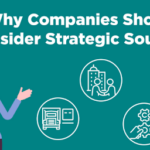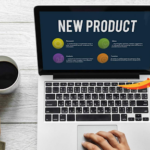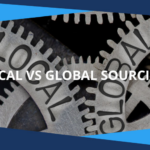Procurement systems are increasingly in demand today due to their value proposition. Many business headaches are being handled by sourcing companies; hiring these companies is now a critical strategy for numerous organizations.
Here at BrandNewMD, we deal with organization of all types and sizes
Below are the most common supplier problems and their possible solutions to validate a smooth procurement process.
1.Accepting Poor Quality for Lower Costs
Many suppliers compromise on product quality to save a few bucks out of their budget. In numerous cases, it has been observed that quality protocols are being swept under the rug for the sake of saving money. Quality can be expensive, leading many supplier to opt for cheaper materials.
This approach is acceptable to some businesses, but it risks damaging customer satisfaction and the company’s reputation due to defective products.
Solution:
Cost savings are crucial in procurement, but sacrificing quality can lead to poor customer feedback, ultimately harming the company’s image in the long run.
Create a KPI dashboard to monitor both the quality and cost of your product, and use this to evaluate overall supplier’s performance.
2. Providing Unclear Requirements
Businesses expect suppliers to provide products exactly according to customer demands. However, businesses are often reluctant to provide the exact specifications required.
Vague, uncertain, and generally miscommunicated requirements for products lead to purchasing problems. Fortunately, the solution to this issue is quite simple and can help bridge the consumer gap.
Solution:
The procurement team of your company must provide detailed and comprehensive guidelines about size, dimension, and other quality specifications to fulfill the “help me help you” principle.
3. Overlooking Supplier Pre-Assessments
Many businesses fail to scrutinize the capabilities of their suppliers. Often, suppliers excel at verbal communication and successfully convince the business that they can deliver the best product. However, the results can be disappointing due to a lack of rigorous vetting criteria.
Solution:
The supplier selection process must be aligned with the organization’s goals and values. This will help you choose the right supplier for your business. A spread sheet or specific software not only assists you in resolving the purchasing problems and solutions to these issues but also improves the efficiency of the overall procurement process.
4. Not talking about KPIs
KPIs (key performance indicators) assess the success of the business. Maintaining KPIs and communicating them to suppliers helps remove the most common problem of the sourcing process, which is maintaining quality standards according to business requirements.
Solution:
Businesses must make it mandatory to follow KPI protocols while selecting a sensible supplier. KPIs should be clearly defined, and supplier performance should be reviewed after every quarter to gauge performance and determine if alternatives are needed.
5. Making decisions based on Assumption
Successful business strategies can be implemented if the selection of product or supplier is based on concrete data, as gut feelings often lead to common supplier problems Some of these problems include:
- Making purchase orders using incomplete data or wrong assumptions.
- Choosing suppliers based on personal relationships when they have a poor record of KPIs.
- Trusting instinct, even with extensive experience, remains risky in the field because business decisions should be based on records, data, and statistics.
Solution:
Use business records and data analysis to make decisions, rather than relying on inner feelings. Taking expert advice can also help you make better decisions. In addition to key performance indicators (KPIs), no other tool is more effective in guiding the right steps.
6. Operating Without a Written Contract
Verbal agreements are risky and often lead to common supplier problems. Written agreements serve as evidence to confirm the terms and conditions, preventing mishandling by either side.
Recent research shows that poorly managed contracts can reduce your net profit by 9%, which underscores the importance of written agreements.
A written agreement should include the following key terms:
- Clearly identify both parties, specifying who is the buyer and who is the supplier.
- Define the scope of work
- Outlines the rates
- Specify the type of product
Solution:
When finalizing a deal with a supplier, make sure you have signed a well-drafted agreement. It’s advisable to involve a legal advisor, especially in international trade, to help you negotiate favorable terms.
7. Procurement Bypass
Sometimes employees or departments engage in fraud by purchasing items or services that were not approved in the procurement process. Even after the procurement process is finalized, this can occur. This deviation is known as procurement bypass.
Solution
This type of fraud or kickback is often revealed after the issuance of an expense report, making it crucial for the organization to take serious action against such acts to avoid significant impacts on the organization’s bottom line.
8. Failing to overlook inflation properly
Supply chain experts must keep an eye on market inflation fluctuations, as they are essential for making accurate estimates.
Inflation is always taken into account because it affects various factors, such as demand-pull and cost-push elements, money supply, and currency devaluation. If you fail to monitor inflation closely, you could end up spending more money in your business than your competitors.
Solution:
Understand the fluctuations of inflation in your supply chain sector. If necessary, negotiate costs with suppliers to manage these expenses and mitigate possible risks.
Key takeaways
Dealing with suppliers is not easy and can be a challenging task. Every problem comes with a solution, and challenges can be managed with a proactive approach. Focusing on clear communication and transparency on every objective will pave the way.
By adopting some pro Tips to make product sourcing effective, you can mitigate potential risk and explore opportunities for improvement.
Committing to Maintaining strong supplier relationships in product sourcing will enhance efficiency and increase the bottom line. Regular checks on quality control, cost management and constructive feedback can lay the foundation for continuous and prolonged relationships with suppliers.
Are you looking for the right supplier for your business? The expert team at BrandNewMD can assist in finding the ideal suppliers to manufacture and timely deliver goods to boost your business sales








